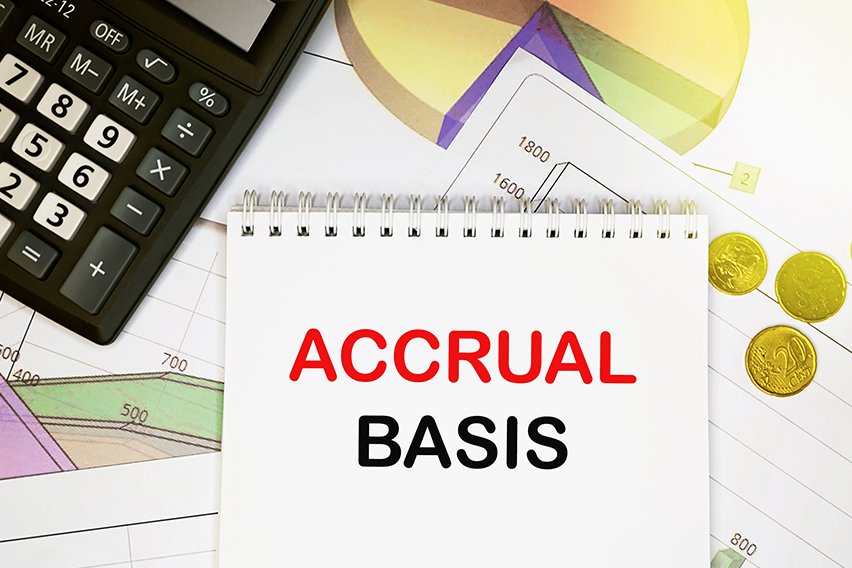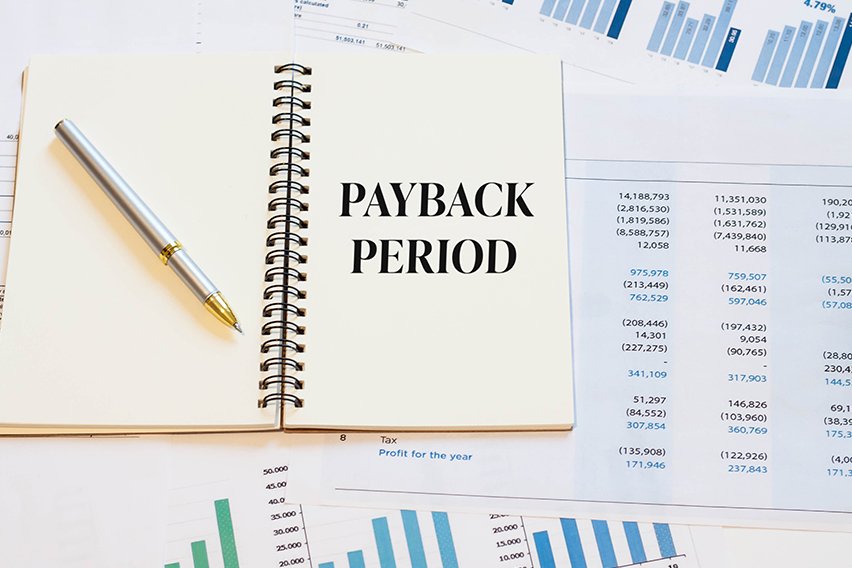How Accounting Can Help Your Small Business Succeed | How-To Guide

Accounting can help your small business succeed by giving you insights into the overall financial health of your company, offering a precise report of your cash flow, demonstrating opportunities for growth and keeping you organized and accurate when filing your taxes.
As a small business owner you can choose to oversee your business accounting on your own, or you can hire a professional accountant to help you set up your business, prepare financial documents, manage payroll processes, file taxes and more.
You don’t need to be an accounting expert to run a small business, but you’ll want to have a few basic accounting skills in your back pocket to make sure your business runs smoothly and is on track to make money. This guide takes you through the essentials of small business accounting and offers some time-saving financial tips to set your company up for success.
Here’s what we’ll cover:
How Can Accounting Help Your Small Business?
What Are The Basics of Small Business Accounting?
How To Get Your Business Finances In Order
Do Small Businesses Need Accountants?
NOTE: FreshBooks Support team members are not certified income tax or accounting professionals and cannot provide advice in these areas, outside of supporting questions about FreshBooks. If you need income tax advice please contact an accountant in your area.
How Can Accounting Help Your Business?
Accounting doesn’t just make life easier at tax time and give you a better idea of how your business is doing financially. Accurate accounting can also make you more attractive to clients. Here are some common ways proper accounting can help make your business more valuable for your clients:
1. Financial Stability
When your business finances are in order, you have an accurate view of how much money is coming and going. You can also create more accurate forecasts for future revenue and expenses, so you can make sure you have enough cash reserves to float you through any tough times.
With stable business finances, you can offer your clients a consistent, positive experience. You won’t need to cut costs unexpectedly because money is tight, so you won’t suddenly cut down on employees or take on so much new business that the quality of your work suffers.
2. Greater Efficiency
Proper accounting offers you up-to-date financial data about your business. And that can help you make crucial decisions about the need for, and timing of, new business investments. Could new equipment make you work faster? Could it mean you deliver better service to your clients?
Accurate financial data helps you decide whether it’s the right time to invest more cash in your company and how those expenses will affect your cash flow.
3. Smarter Marketing
Financial records offer you insights into your expenses and cash flow, which in turn can help you make better decisions about marketing your business.
Accurate accounting information can help you decide the right time to launch a marketing campaign and understand whether your marketing efforts are delivering the results you want.

What Are the Basics of Small Business Accounting?
Now that you’ve got a handle on how accounting can help your business, you’re ready to dive into the basic principles of small business accounting. There are three main areas of effective small business accounting:
1. Master Basic Bookkeeping
Don’t let the name intimidate you: bookkeeping just refers to keeping track of your business transactions, from revenues to payments. One of your main business goals is probably to make money, and to do that, you’ll need to know how your income compares to your costs. Proper bookkeeping can help by:
- Letting you know if you’re making a profit, or if you’re on track to do so
- Telling you whether you’re in danger of running out of money
- Simplifying tax season by recording information you’ll need to file taxes
2. File Your Business Tax Returns
Tax season can be a stressful time for freelancers and small business owners, and for good reason: filing taxes becomes more complicated when you’re self-employed. But with proper accounting throughout the year, you can lessen tax-time headaches.
There are different types of business taxes and they vary by industry and by state, but some of the most common include:
- Income Tax: Which requires you to pay a portion of your income to the government.
- Sales Tax: Depending on the type of work you do for clients, you might add sales tax to your invoices that you later pay back to the government.
- Employee Taxes: If your company has staff, you’ll collect taxes from your employees’ paychecks and pass that on to the government.
For a full rundown of filing taxes as a freelancer, check out this FreshBooks blog.
3. Create Financial Reports
Accounting reports can help guide important business decisions. You probably face tough choices often—whether to buy pricey equipment for your business, what specific services to offer clients or whether to hire contractors to help with your workload.
There are a number of accounting reports that can help you make these decisions. Some of the most common reports include:
- Cash Flow Statement: Shows you all your financial activities, from the money flowing into your business (earnings from clients) to the expenses moving out (for rent, utilities, staff and more). Clearly, this is an important report to get right. In fact, a study by US Bank found 82 percent of businesses fail because of cash flow problems.
- Profit and Loss Report: Shows your total income and your total expenses for a specific time period. It’s not quite as detailed as your cash flow statement, but it offers a helpful overview of where your business stands financially.
- Balance Sheet: Shows what your company owns versus what it owes for a specific time period. In other words, it gives a snapshot of your financial position at any point in time.
How to Get Your Business Finances in Order
To put all this information into practice, this step-by-step guide walks you through a basic plan for getting your accounting in order. Consider it your financial to-do list.
1. Open a Separate Business Bank Account
You’ll want to keep your business income separate from your personal finances. The easiest way to do this is to set up a separate bank account for your business. It pays to do your homework before signing up for an account: shop around to see what business accounts are available at different banks and compare the banking fees charged.
It might make sense to just open a business checking account when starting out as a freelancer, but as your company grows you might want to add a savings account to stash away money for taxes and other expenses.
2. Develop an Expense Tracking Method
Good record keeping will help you get a handle on the overall health of your company and help ease the pain of tax season. Tracking your expenses is an important part of that. Make sure you’re looking at all expenses related to your business, including:
- Meals and entertainment related to business meetings
- Travel for work
- Living expenses that overlap with your home office (if you have one) including rent, internet, phone bills, etc.
- Costs related to your car, if you use it for work purposes
You can track these by physically filing receipts, or you can sign up for cloud-based accounting software that digitally tracks all your expenses and can even do it automatically.
3. Create a Bookkeeping System
Much like with expense tracking, there are accounting tools that can help you manage your bookkeeping. But if you’re looking to handle bookkeeping manually, you’ll need to develop a system and stick to it.
There are two basic ways to oversee bookkeeping:
- The cash method involves recording revenues and expenses at the time they’re received. So a freelancer would record their invoices at the time they receive payment from a client.
- The accrual method involves recording revenues and expenses at the time of the transaction. So you would record a payment when the invoice is sent, rather than when the payment from the client lands in your bank account.
4. Learn Your Tax Obligations
The tax obligations of your business will depend on the legal structure of your company. In many cases, self-employed workers (like freelancers) can claim their business income on a personal tax return.
As a freelancer, you should be sure to withhold taxes from your income, as you’ll need to pay taxes to the government that would normally be withheld by an employer.
5. Review Your Methods to See What Works
The needs of small businesses evolve over time, as your company grows and your services evolve. The accounting methods you start out with might not serve you in the longer term.
As your business expands, be aware of the time you spend on accounting and reflect on how much that time costs your business. If the burden of handling all your accounting needs becomes to great, you might want to seek the help of a professional accountant.

Do Small Businesses Need Accountants?
A good rule of thumb to follow: if managing your business accounting starts getting in the way of completing projects for your clients, you should consider hiring an accountant. Or you might feel better working with an accountant at tax time, or to address certain questions related to your small business. Ultimately, the decision is yours.
Accountants can help small businesses in many ways, including:
- Finding the best business structure to suit your needs, from a sole proprietorship to a corporation.
- Preparing the financial documents included in your business plan
- Providing advice on opening business bank accounts
- Managing payroll processes
- Preparing your tax returns and finding tax breaks that apply to your business
- Close your books at the end of the year and create financial reports
- Help you navigate a tax audit, if that problem ever arises
If you do choose to work with an accountant, it’s up to you how many of your financial tasks to hand over. You might just want to consult an accountant while you’re launching your business, or maybe you’d like to hand over all your financial documents at tax time so they can file your tax return.
RELATED ARTICLES

 What Is LIFO Method? Definition and Example
What Is LIFO Method? Definition and Example Is Accumulated Depreciation an Asset? How To Calculate It
Is Accumulated Depreciation an Asset? How To Calculate It What Are Adjusting Journal Entries?
What Are Adjusting Journal Entries? Accrual Accounting: Definition, How It Works, and Examples
Accrual Accounting: Definition, How It Works, and Examples How To Read A Balance Sheet: An Overview
How To Read A Balance Sheet: An Overview What Is a Payback Period? How Time Affects Investment Decisions
What Is a Payback Period? How Time Affects Investment Decisions